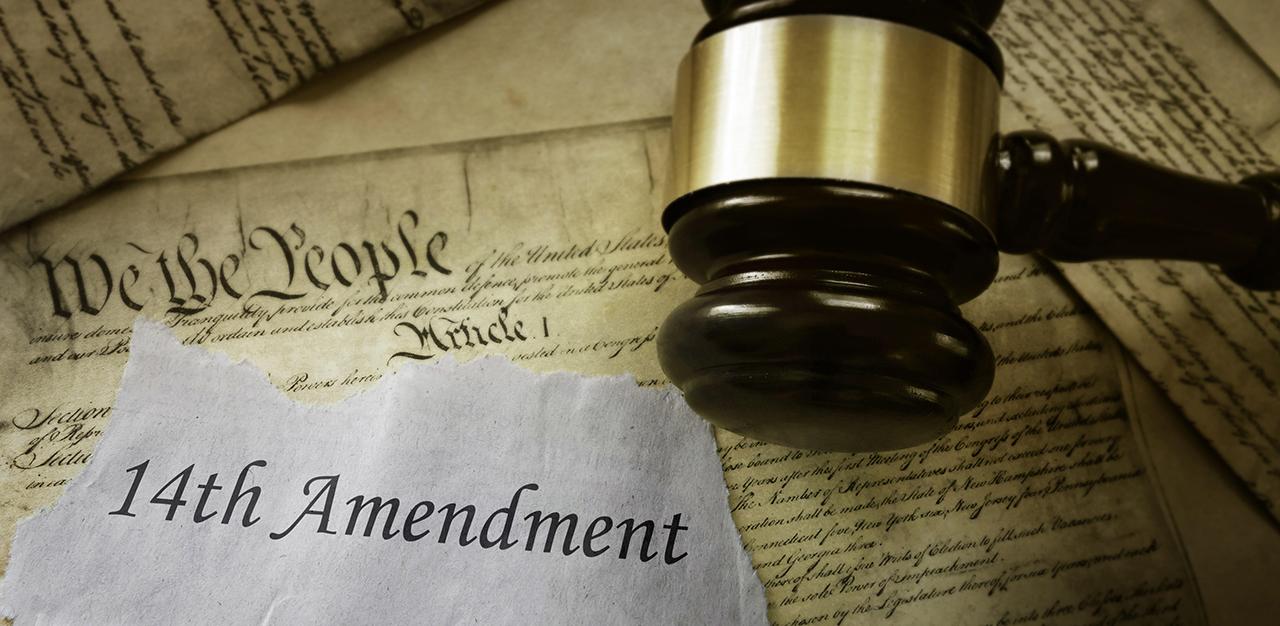
Ratified in the summer of 1868, three years after the end of the Civil War, the Fourteenth Amendment was one of three amendments passed during the Reconstruction era (1865-1877), the 10-15 year timeframe after the War ended when leaders and thinkers turned their attention to reconstructing a unified nation, abolishing slavery, and establishing civil and legal rights in favor of all persons born or naturalized in the United States.
This amendment is unique and squarely confronts issues of fairness, equality, and justice. It operates as a vehicle or mechanism to ensure protections provided by the Fifth Amendment’s Due Process and Equal Protection Clauses against unwarranted interference by the federal government apply equally to unreasonable actions taken by state governments. It also incorporates the first eight amendments within our Bill of Rights. Prior to the July 1868 ratification of the Fourteenth Amendment, the individual rights, freedoms, and protections enshrined, therein, only applied to redress or prevent violations by the federal government. Individuals, therefore, were not protected by the Constitution against state government action.
In tandem with the Fifth Amendment, the Fourteenth Amendment also reflects American principles of fairness and justice and provides for “equal justice for all” by establishing a standard and burden of proof the government must meet to demonstrate due process was afforded to a citizen prior to unwelcomed and injurious state government action.
As for due process protections against federal government action (governed by the Fifth Amendment) and against state government action (governed by the Fourteenth Amendment), in 1950, our Supreme Court set forth and detailed the following minimum procedural requirements necessary for the government to demonstrate due process was respected for purposes of deprivation of life, liberty or property: (1) adequate notice; (2) opportunity to be heard; (3) an impartial tribunal.
Though the Fourteenth Amendment is comprised of five sections, Section 1 is almost always the focal point of any Fourteenth Amendment debate, discussion, ruling, or law review article. In fact, it is routine for landmark Supreme Court decisions to be based on or spring from the 80 words that form this one section of the Fourteenth Amendment. Though this section is only 80 words, it tackles complex notions of citizenship, fairness, equality, and procedural safeguards (put into place to balance out government power over an individual and to thwart corruption). Therefore, Section 1 is more manageable by breaking it up into four separate clauses. It states,
All persons born or naturalized in the United States, and subject to the jurisdiction thereof, are citizens of the United States and of the State wherein they reside.
No State shall make or enforce any law which shall abridge the privileges or immunities of citizens of the United States;
Nor shall any State deprive any person of life, liberty, or property, without due process of law;
Nor deny to any person within its jurisdiction the equal protection of the laws.
We, at America’s Future, embrace the position that God-given rights and freedoms are inalienable and deserve absolute protection against abridgment by our government. Our right to due process protections prior to uninvited governmental interference with our life, liberty or property is deeply entrenched in America’s history and traditions and is at the heart of the American system of ordered liberty.






